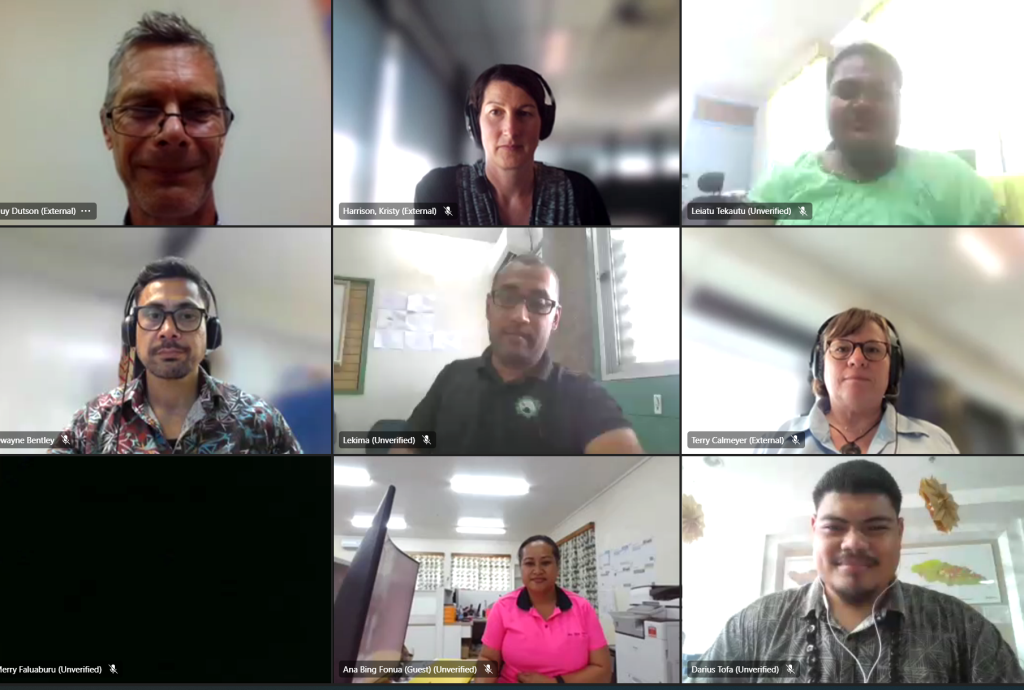
28 March 2024, Apia Samoa - A webinar providing stakeholders with guidance to strengthen environmental safeguards for tourism, infrastructure projects and other major developments across the Pacific islands has provided the Pacific's burgeoning tourism sector a "reality check" on typical eco-tourism impacts like habitat clearance, resource extraction, and invasive species spread.
It was one of the outcomes of the "Strengthening the Mitigation Hierarchy in Pacific Infrastructure and Tourism Projects” webinar hosted by the Secretariat of the Pacific Regional Environment Programmes’s (SPREP) Pacific Network for Environmental Assessment (PNEA).
The webinar attracted a diverse audience of environmental practitioners, regulators, policy makers and industry stakeholders from across and beyond the Pacific, including representatives from government and non-government organisations as well as private sector entities.
Mr Guy Dutson, a renowned biodiversity conservation expert spoke during the webinar. During his presentation, he drew upon decades of experience developing mitigation plans and impact assessments across the Asia-Pacific region. He outlined frameworks like the mitigation hierarchy - a sequential process to avoid, minimize, restore and offset environmental impacts - as well as the International Finance Corporation (IFC) Performance Standard 6 guidelines for managing biodiversity and ecosystem services. His presentation drew upon regional case studies to demonstrate practical methods for rigorously applying these tools.
"The mitigation hierarchy defines a sequential process of avoiding impacts first, then minimizing, restoring, and finally offsetting residual impacts as a last resort," Mr Dutson explained. "Rigorous adherence to this hierarchy is essential for truly sustainable development."
Mr Dutson highlighted the importance of the avoidance step, noting that failure to properly consider alternative locations and designs can lead to unnecessary environmental damage and costlier offsets later. He stressed enabling conditions like policies, regulations, and institutional capacity are crucial for effective mitigation.

Turning to IFC Performance Standard 6, the presentation delved into the objectives of protecting biodiversity, maintaining ecosystem services, and promoting sustainable natural resource management. "PS6 adds significant value beyond traditional environmental impact assessments," said Mr Dutson. "It mandates quantifying biodiversity losses and gains, setting explicit targets like no net loss, and undertaking comprehensive planning, monitoring and evaluation."
Mr Dutson outlined strategies to avoid and minimise these, as well as opportunities for tourism developments to enhance positive environmental outcomes through measures like establishing protected areas and facilitating community monitoring.
The session concluded with an engaged Q&A covering challenges such as land tenure issues, capacity gaps, offsetting technicalities and more.
In his closing remarks, Director for the Environmental Monitoring and Governance (EMG) Programme, Mr Jope Davetanivalu said that Mr Dutson’s presentation clearly demonstrates that the mitigation hierarchy and the IFC PS6 offer a vital roadmap for sustainable development across our region."
"I believe through this presentation today we will begin to raise the profile of this discussion and think strategically on how mitigation hierarchy can be benefit in achieving sustainable and resilient infrastructure and tourism projects for prosperity in our region,” said Mr Davetanivalu.
The webinar reinforces SPREP's commitment to enhancing environmental governance through education and collaboration. It also underscores the critical role of regional cooperation in addressing environmental challenges in the Pacific.
The Pacific Network for Environmental Assessment (PNEA) is an initiative of the Environmental Monitoring Governance (EMG) Programme of SPREP and supported with financial assistance from the Capacity Building Related to Multilateral Environmental Agreements (MEA) In African, Caribbean and Pacific (ACP) Countries - Phase III (ACPMEAs III) programme. The portal provides resources and capacity building opportunities to support environmental practitioners across the Pacific in advancement of environmental assessments and planning in the region.
For more information about the PNEA or future initiatives, visit the PNEA portal, https://pnea.sprep.org or contact the Environmental Monitoring and Reporting Adviser, Vainuupo Jungblut, [email protected], Environmental Assessment and Planning Officer, Puta Tofinga, [email protected] or PNEA Technical Support Officer, Ivan Diarra, [email protected].